What to Do in the First Five Minutes of a Workplace Emergency
Emergencies can happen in any workplace, whether it’s a fire, a medical issue, or a natural disaster. The first five minutes of a workplace emergency are critical, and how you respond during this period can significantly impact the outcome. Knowing what to do in these precious moments could mean the difference between life and death, or minor and severe injury.
In this blog post, we’ll cover what steps to take immediately after an emergency begins, what actions to avoid, and how proper training can prepare your employees to handle emergencies effectively. Whether your workplace is an office, warehouse, or retail store, these steps can help save lives and prevent injuries.
Immediate Actions to Take in a Workplace Emergency
When an emergency strikes, quick and decisive action is necessary. Here are some of the most important steps to take during the first five minutes:
- Stay Calm and Assess the Situation
The first step in any emergency is to remain calm. Panicking can lead to poor decision-making and delays in getting help. Take a moment to assess the situation. What type of emergency is it? Are there immediate dangers to yourself or others? Is there a clear exit or safe space nearby? - Call for Help
If the situation is life-threatening, the first priority should be to call for emergency services. In the UK, dial 999 for an ambulance, fire brigade, or police. Be sure to provide clear, concise information about the nature of the emergency and your location. Time is critical in emergencies like cardiac arrest, so ensuring help is on the way is essential. - Provide First Aid
If someone is injured, administer first aid while waiting for professional help. This could involve controlling bleeding, performing CPR, or helping someone who is choking. First aid training prepares individuals to step in during these moments and provide potentially life-saving care before emergency responders arrive. - Evacuate if Necessary
For emergencies like fires, gas leaks, or other hazardous situations, evacuating the building may be necessary. Ensure that employees know the location of emergency exits and assembly points. Conduct regular fire drills so that everyone is familiar with evacuation procedures. - Use Emergency Equipment
In some cases, you may need to use workplace emergency equipment, such as fire extinguishers, defibrillators, or first aid kits. Knowing how to properly use these items before an emergency occurs is crucial. Untrained staff may hesitate or misuse equipment, which can worsen the situation.
Related Reading: Fire Safety Training: What Every Workplace Needs to Know
Potential Challenges in Workplace Emergencies
While the actions outlined above are straightforward, there are several common challenges that can arise in emergency situations. Being aware of these potential obstacles can help you and your team prepare for them ahead of time.
Confusion and Panic
One of the most significant issues in any emergency is confusion and panic. Even if employees have received training, the shock of an emergency situation can lead to forgetfulness or disorientation. Employees may become unsure of evacuation routes, emergency procedures, or how to assist others. In these situations, leadership is critical. Designating individuals to take charge during an emergency can help bring order to chaos.
Lack of Proper Equipment
In some workplaces, a lack of basic emergency equipment can delay the response time and increase the risk of harm. For example, not having a readily accessible Automated External Defibrillator (AED) in case of cardiac arrest or not knowing where first aid supplies are kept can be detrimental. Regularly checking that equipment is available, functional, and well-stocked is an important part of emergency preparedness.
Related Reading: Key First Aid Supplies Every Office Should Have
Essential Training for Emergency Preparedness
Having employees trained in first aid and emergency response is essential for workplace safety. Employees need to be familiar with how to handle situations that could arise in their specific workplace, from medical issues to evacuations.
Emergency Response Teams
Some workplaces designate certain employees to serve on an emergency response team. These individuals receive advanced training in first aid, evacuation procedures, and how to use emergency equipment like AEDs and fire extinguishers. Having a dedicated team ensures that there are always trained individuals ready to take action in an emergency.
Regular Drills and Simulations
Drills and emergency simulations are essential for keeping your team prepared. Fire drills, first aid practice sessions, and other simulations allow employees to become comfortable with the correct procedures in a low-stress environment. This makes it easier to recall this information when a real emergency strikes.
Ongoing First Aid Training
First aid skills need to be refreshed regularly. Attending a one-time training session isn’t enough; skills can be forgotten or become outdated over time. The HSE recommends requalifying first aid skills every three years and refreshing skills annually to ensure employees are ready to act when needed.
Related Reading: The ABCs of First Aid: Airway, Breathing, Circulation
How Frontline Training Can Help You Prepare
Emergencies can happen anywhere, at any time, and having a well-prepared team is critical for ensuring the safety of your employees. At Frontline Training, we offer comprehensive First Aid and Emergency Response Training tailored to the unique needs of your business. Whether your workplace faces specific hazards or general safety concerns, we can provide training that equips your staff with the knowledge and confidence they need to handle emergencies effectively.
Our courses cover everything from first aid basics, such as CPR and wound management, to advanced skills like using AEDs and responding to severe injuries. We also offer evacuation training and fire safety courses to ensure your employees know how to react in all kinds of emergencies.
Don’t wait until it’s too late—prepare your team now. Book an emergency response training course with Frontline Training today, and give your employees the life-saving skills they need to act in those critical first five minutes.
